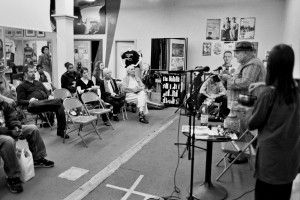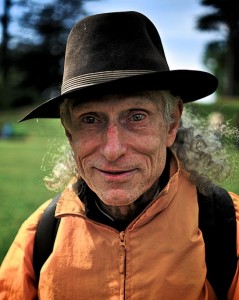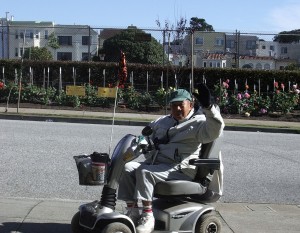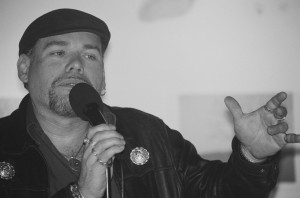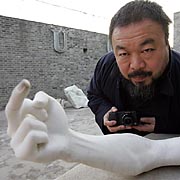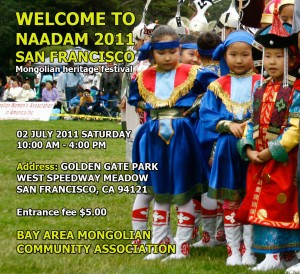
They had found her in an apartment with a dead man and brought her to SF Animal Care and Control. She was put in a cage in a big room with other cats, waiting for someone to adopt them. When she saw me she walked near the cage door and spoke to me with her old, soulful eyes. In an instant I knew she was to come home with me.
Cookie has beautiful stripes of orange and black coloring, and strikingly elegant pure white paws. She snuggles next to me while I sleep and sits on my lap when I read or write. During our monthly salon, Cookie often comes into the circle and sits among the poets. She prefers to close her eyes and listens, except most of the time she is pursued by eager hands, wanting to pet or hold her. When Cookie desires a nap over poetry, she burrows under the blankets, as darkness is the refuge of a poet.
Photo by Dore Steinberg.


